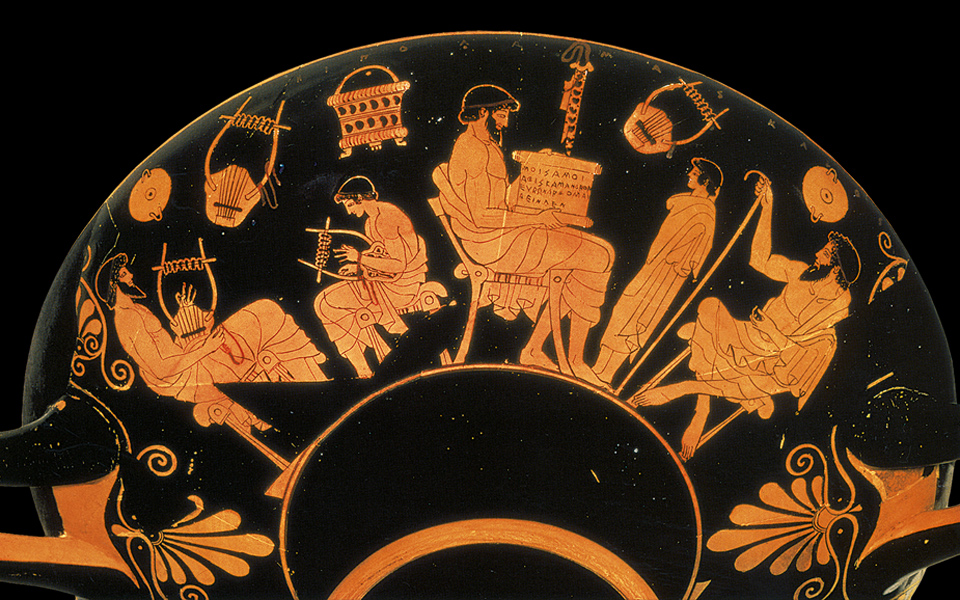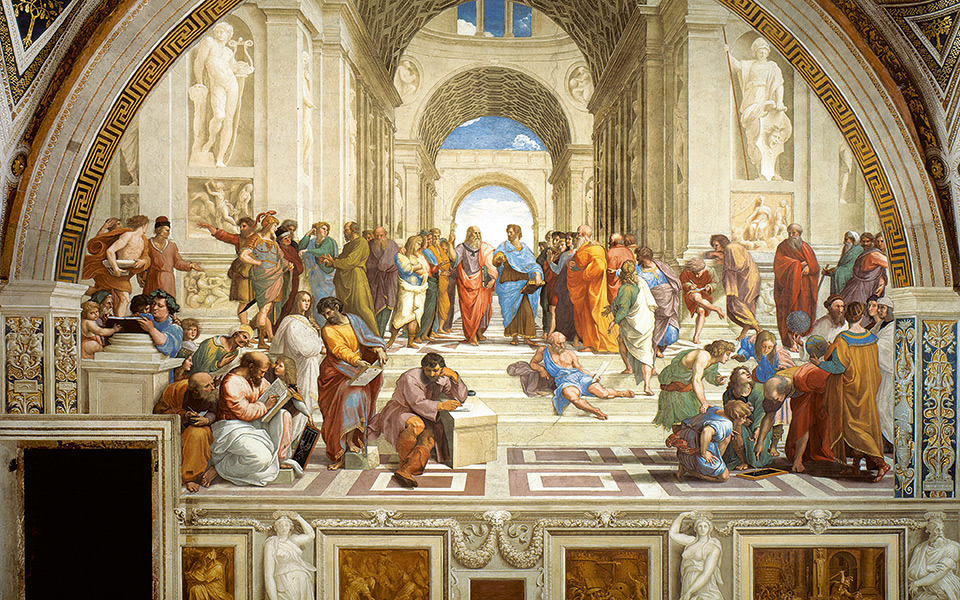Today, the word “democracy” means very different things to different people in different countries. It is associated with majority rule, a commitment to human rights, with the constitutional rule of law, with multi-party systems of government, and, recently in my own country, with intense political partisanship and gridlock.
Going back to the beginnings of the practice of citizen self-government in complex societies, by using the analytic methods of contemporary social science, can help clear away some confusion about what democracy really is, and what it is truly good for. With the sudden collapse of the palace-centered Bronze Age civilization in about 1100 BC, Greek communities rid themselves of kings and the strict hierarchy associated with the Mycenaean palaces. As Greece emerged from the “Dark Age” around the time of Homer, communities consolidated into city-states. In some of these city-states, citizens resisted the emergence of elite rulers; the result was a range of citizen-centered forms of government. The most fully developed version of citizen government was democracy.
Citizen government developed over a long period of time, but democracy was invented in the aftermath of a revolution. In 508 BC, the ordinary people of Athens rose up in arms to resist and defeat an attempt by Athenian elites to establish a narrow oligarchy. In the aftermath of this Athenian Revolution, all adult males currently resident in Attica, the territory of Athens, were considered citizens. As such they had both privileges and a duty to participate actively in democratic institutions and civic culture.
“ What we learn by going back to the Greeks – the people who invented the word and who first practiced democracy on a scale beyond small face-to-face communities – is that democracy is, at its heart, a remarkable system for advancing the security and welfare of communities of citizens. ”
MUCH MORE THAN MAJORITY RULE
Democracy, as it was practiced by the ancient Athenians and by other Greek communities that quickly followed Athens’ lead, proved to be a dynamic engine for progress. Democracy unleashed the latent power of useful knowledge dispersed across a diverse population. Citizens from all walks of life participated in democratic institutions, including a citizen Council that set the agenda for a citizen Assembly, which made decisions that were reviewed in the People’s Courts. Through these and other formal institutions, and through informal networks that connected citizens with other community residents, useful knowledge known by individuals – shoemakers, sailors, fishermen and traders, as well as philosophers and statesmen – was disclosed and made available for community improvement. Through their participation in government and in the culture of the democratic city, citizens learned to learn from one another – and from non-citizen residents who lived among them. Democracy proved, in short, to be a system for the promotion of social and technical innovation and continuous learning.
There are many reasons to care about this early chapter in the history of democracy. There are very good reasons for every individual to want to have political freedom, equality and dignity. I believe that people’s lives are better if they have the chance to live together as citizens, because it means that they can, together, decide on their collective future. But I also believe that there are other things people can and should care about as well, including their security as an independent country and their welfare as individuals: People’s lives go better if they live without fear, and with enough food, in decent houses, receiving fair pay for the work they do.
The history of ancient Athens – the best documented and in some ways the most democratic of all the Greek city-states – shows us that democracy, when it is well designed, can help a country to become more secure and can help its people to live in greater prosperity. It can also help a country to open access to its institutions to newcomers: to immigrants and visitors. Among the notable developments in Athens’ democracy was the strengthening of civil rights for non-citizen residents. Ancient Greek society condoned legal slavery, but in Athens even slaves were granted legal immunity from certain forms of humiliation. Democracy builds national security and increases welfare because it promotes the improved use of human knowledge and widens the scope of those whose knowledge is regarded as potentially valuable. New innovations arising from shared information and deeper learning arising from rational investment in human capital, are the keys to long-term success, in ancient Greece, and in the modern world. Today, as in the ancient Greek world of 2,500 years ago, every organization, from a small business firm to the greatest nation, needs to find ways to innovate and to learn if it is to continue to prosper, over a long period of time, in a complex and changing world.
“ I believe that people’s lives are better if they have the chance to live together as citizens, because it means that they can, together, decide on their collective future. ”

The Greeks discovered that in order for a People collectively to accomplish important things for themselves, they must develop a strong commitment to citizenship – to equal high standing among an extensive and socially diverse body of people. This required that all citizens, rich and poor, highly educated and manual laborers alike, enjoy freedom of speech, freedom of association, equal standing and civic dignity. Moreover, the People’s capacity to accomplish important things for themselves was enhanced, rather than restricted, by requiring legislation passed by the People to conform to fundamental rules – rules that were approved on a regular basis by People themselves, but that could not be changed overnight. And thus the Greeks arrived at their mature conception of democracy: “collective and limited self-government by politically free, equal and dignified citizens.”
“ For the ancient Greeks, democracy meant much more than majority rule. It meant “A People’s collective capacity to accomplish important things, for themselves, as a community. ”
THE INCENTIVE TO DO BETTER
The history of democracy in Athens shows us that democracy is an effective way to organize the many kinds of knowledge that are widely dispersed across a large population of people. It shows us that it is a mistake to believe that all the knowledge required to maintain a country’s greatness in the long run is possessed by few experts. It shows us that it is a mistake to believe that a few experts will always be able to make the best decisions for the good of the entire community. In a citizen-centered democracy, open to knowledge and innovation, each citizen has a real chance, and a good reason, to share what he and she knows if and when that knowledge might help the community to make a better decision about an important matter. Democracy is the great incubator of innovation and learning, because it gives each citizen the incentive to do better for himself, by sharing what he and she knows with fellow citizens, and thereby to help make his and her community better.
The story of democracy and how it worked to make ancient Athens great holds potential lessons for every organization and every nation of today’s world. We have the potential, today, to build on the Greek model. There are some aspects of Greek society that we, in the Western world, have finally left behind: notably slavery and the restriction of citizenship to men. But ancient Greece still has important lessons to teach western democracies, which have at times forgotten that democracy is about citizenship and knowledge, about collective responsibility for common interests, not just about which political party gets its way for the next few years. And ancient democracy hold important lessons for other countries, like India and China, with a long tradition of rule by elites, countries that do not have a long history of citizenship, political freedom, political equality and civic dignity, but that are eager to take a greater role in world affairs.
The heritage of the ancient Greeks, a heritage that includes but is not limited to democracy, is one of values that can potentially be embraced by all peoples of the world. These are not narrowly western values. The ancient Greek heritage is as relevant today to the people of Iran, Egypt, India, and China as it is to the people of Europe or the USA.











